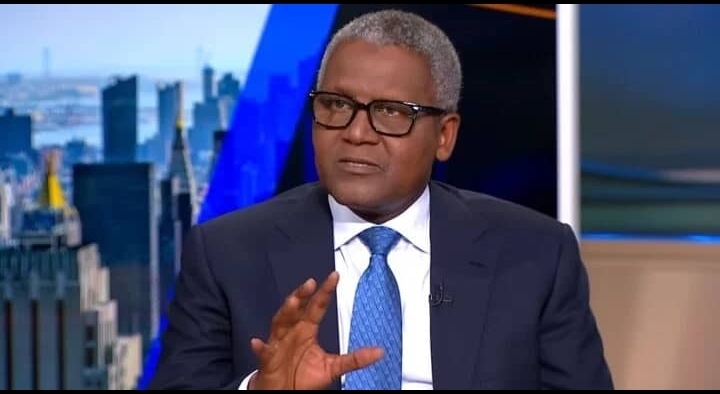Aliko Dangote, President of the Dangote Group, has revealed that Nigerians are currently paying just 55 percent of what citizens in neighbouring West African countries are paying for petrol, thanks to local refining efforts at the Dangote Refinery.
Speaking during a visit by Omar Touray, President of the Economic Community of West African States (ECOWAS) Commission, Dangote highlighted the significant price difference in fuel costs within the region.
“In neighbouring countries, the average price of petrol is around $1 per litre, which is about N1,600. But here at our refinery, we’re selling at between N815 and N820,” Dangote said. “Many Nigerians don’t realise they are currently paying just 55% of what others in the region are paying for petrol.”
He attributed the price drop to domestic refining, which has enhanced fuel affordability, reduced reliance on imports, and strengthened Nigeria’s energy security. Dangote also teased an upcoming, unannounced initiative, emphasizing that the refinery was built primarily for the benefit of Nigerians.
“As long as we continue importing what we can produce, we will remain underdeveloped,” he added. “This refinery is proof that we can build for ourselves at scale, to global standards.”
Dangote dismissed claims that the refinery cannot meet Nigeria’s fuel demands, stating that the facility is fully equipped to serve both the country and the entire West African region.
Citing the positive effects of local production, he noted, “Last year, when we began diesel production, we were able to reduce the price from N1,700 to N1,100 at a go, and as of today, the price has crashed further.” He said this reduction has supported various sectors including mining, agriculture, and general industry.
In his remarks, ECOWAS Commission President Omar Touray praised the refinery’s role in helping the region meet its sulphur content limit of 50 parts per million (ppm) for petroleum products.
“We are still importing products below our standard when a regional company such as Dangote can meet and exceed these requirements,” Touray said. “The private sector must take the lead in ECOWAS industrialisation.”
Touray emphasized the importance of direct engagement with the private sector as ECOWAS celebrates its 50th anniversary. He said the commission is committed to creating an enabling environment for businesses like the Dangote Group, which he described as a model for continental infrastructure development.
He also stressed the need for a regional industrial strategy to combat youth unemployment, poverty, and insecurity. Touray pledged ECOWAS’s full support to help private companies access broader regional markets and encouraged other African nations to emulate Nigeria’s infrastructure-driven approach to development.

